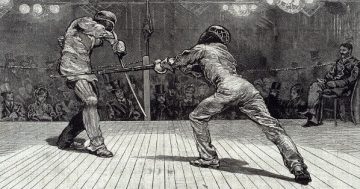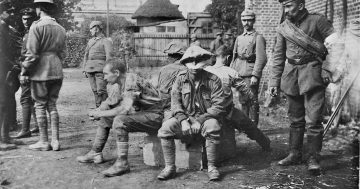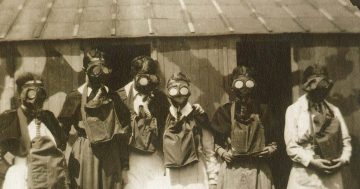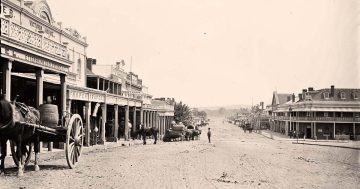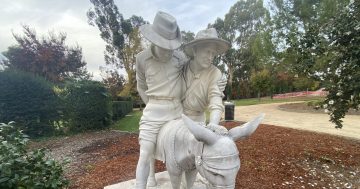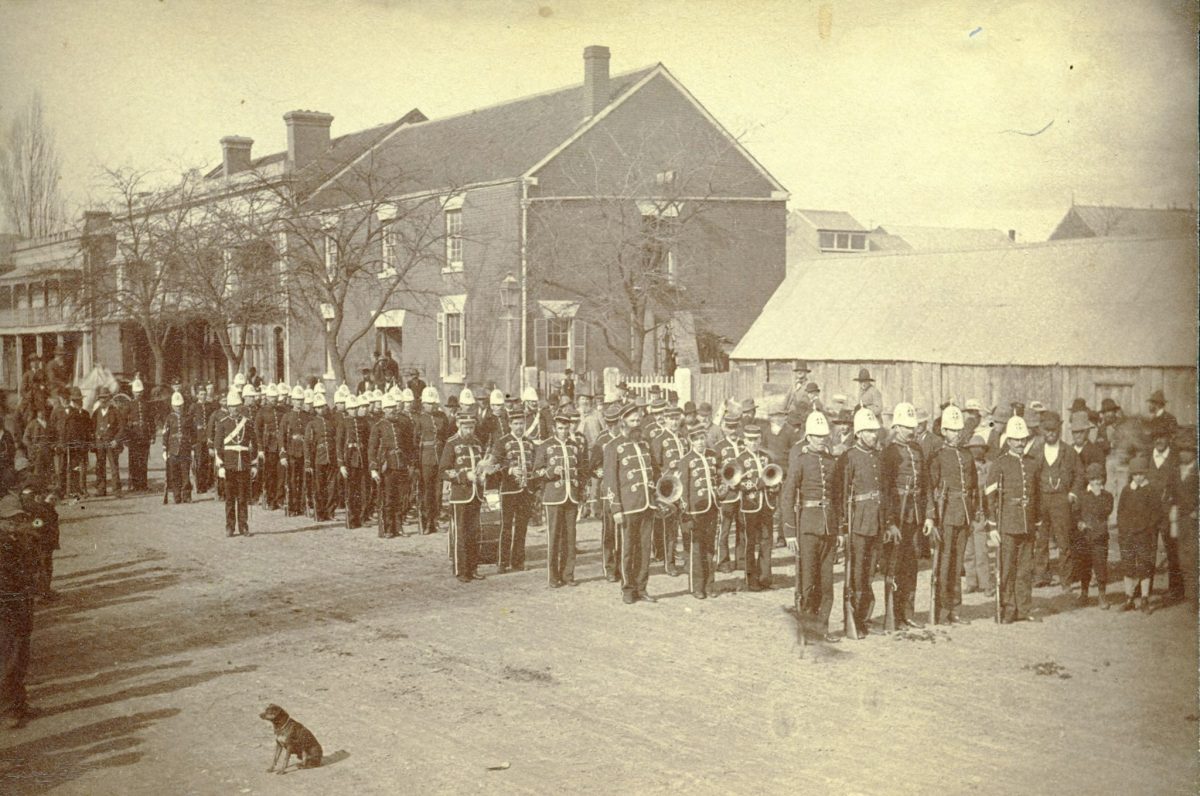
A parade of Wagga’s G. Company, First Regiment NSW Infantry under Captain H B Fitzhardinge and the Wagga Town Band. Photo: CSURA.
Australia’s involvement in military action in Sudan in the late 19th century is a largely forgotten piece of our pre-federation history, but back in 1885, a handful of Wagga lads headed overseas to defend the honour of the British Empire.
A letter in the Sydney Mail in March 1885 declared that “Wagga is perhaps, as well represented, both numerical and in regard to personal qualifications, as any other country district which has furnished its quota to the gallant band of brethren who have carried Australian honour onto the arid plains of Egypt”.
Privates John Ferguson, Frank Turner, H Seymour and D W, Chisholm were members of Wagga’s ‘G Company of the First Infantry Regiment’ which was formed in 1885 under the command of Captain H B Fitzhardinge.
While the overall experience was frustrating for the four Wagga volunteers, it was a historic moment as the New South Wales Contingent in the ‘Soudan’ was the first military contingent to be raised and deployed overseas by an Australian colony.
The conflict had kicked off a couple of years before when there was a revolt against the British-backed Egyptian regime that ruled in the Sudan.
When indigenous rebel Muhammed Ahmed, known as “the Mahdi”, defeated the Egyptians and stranded the surviving forces, their British allies were persuaded to send the legendary soldier General Charles Gordon to sort the matter out.
Rather than negotiate a withdrawal for the Egyptian troops, he decided to double down and pick his own fight with the Mahdi. He was defeated, besieged and ultimately killed.
The demise of a national hero did not go down well with the British, and as the Empire’s troops fought their way down the Nile, the Australian colonies rattled their sabres and asked for a chance to prove their mettle.
Since New South Wales promised to foot the bill for their soldiers, they were invited along and an infantry battalion of 522 men and 24 officers and an artillery battery of 212 men set sail on 3 March 1885.
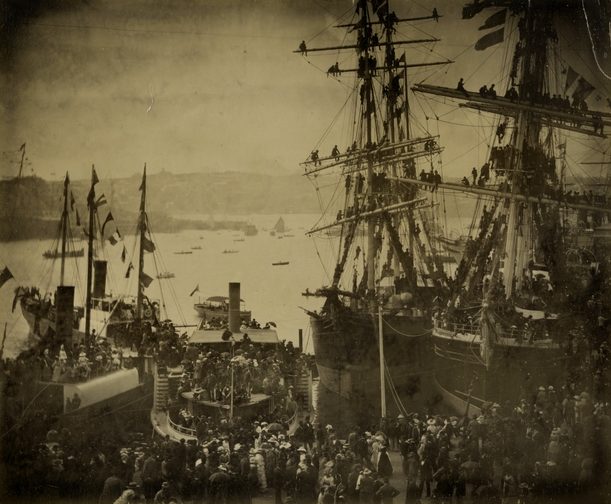
The NSW Contingent departs for the Sudan in March 1885. Photo: Carl Leibinger, AWM.
Overall, the Aussies ended up doing very little in the campaign, but when it was abandoned in May and the NSW Contingent sailed for home, they received a hero’s welcome.
Wagga’s militia units were dispatched to Sydney to escort the returning soldiers home. An article in The Daily Advertiser on 27 June 1885 detailed a hastily arranged welcome at the South Wagga Railway Station.
“Captain Fitzhardinge had requested the members of the local corps to assemble at the railway station to receive their comrades-in-arms,” the correspondent wrote.
“There was a numerous attendance of the inhabitants also there to assist in the demonstration of welcome. The school holidays being on, it is needless to say that the children formed a ‘contingent’ in themselves, and their anxiety to be in the front rank of the spectators was only equalled by that of the numerous ‘sisters, cousins, and aunts’ not only of the Soudan soldiers, but of the many members of the local corps who went to Sydney the other day to assist in the demonstration, and who were to return by the same train.”
The writer remarked on the “very injudicious” practice of militia members parading on the platform where he speculated it would only be a matter of time before “some will surely one day be dragged under the wheels of the moving carriages”.
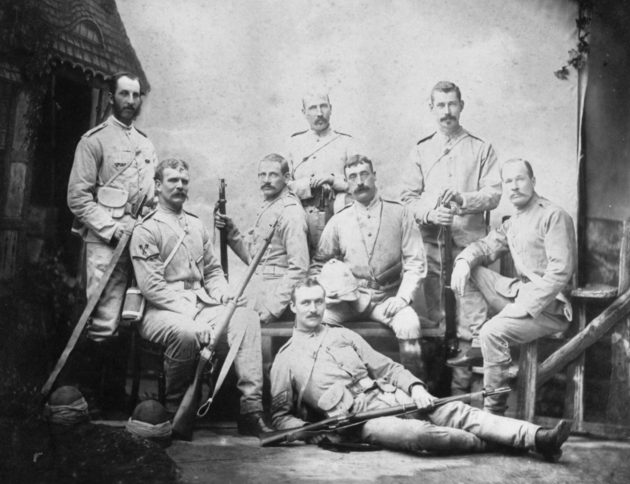
Infantrymen of the NSW contingent to the Sudan wearing the khaki uniform. Photo: AWM.
Anticipation built as the train arrived 40 minutes late and the crowd rushed the platform to catch a glimpse of the returning soldiers in their curious new “Kakhee” uniforms and pith helmets.
The British were the first army to use a form of camouflage and it seems that locals were unimpressed by the drab uniforms that had replaced the customary red woollen coats.
“The Kakhee uniform, which, however suitable it may be to the sandy plains of Egypt, both from a military and comfortable point of view, is not the one likely to be selected in the south-western portion – or, indeed, any other – of the colony in the winter time, and we doubt not that every member of the contingent will divest himself of it as speedily as possible,” said The Advertiser.
“The returned members certainly look a little careworn, and their dress does not counteract that appearance.”
Despite their unspectacular kit, Wagga’s four heroes were presented to Mayor Gormley, who was brimming with pride.
“It gives me great pleasure to welcome you back after the part you have taken in one of the greatest events that has occurred in the history of the British Empire,” he declared to great applause.
Captain Fitzhardinge echoed Cr Gormley’s comments and three cheers were then called for “The Contingent,” “The Mayor,” and the”Wagga Company” before the train continued on its way to Melbourne.
Three years later, Wagga’s veterans were honoured by the Khedive of Egypt, who awarded them the Khedive’s Star for their military service to his nation.







